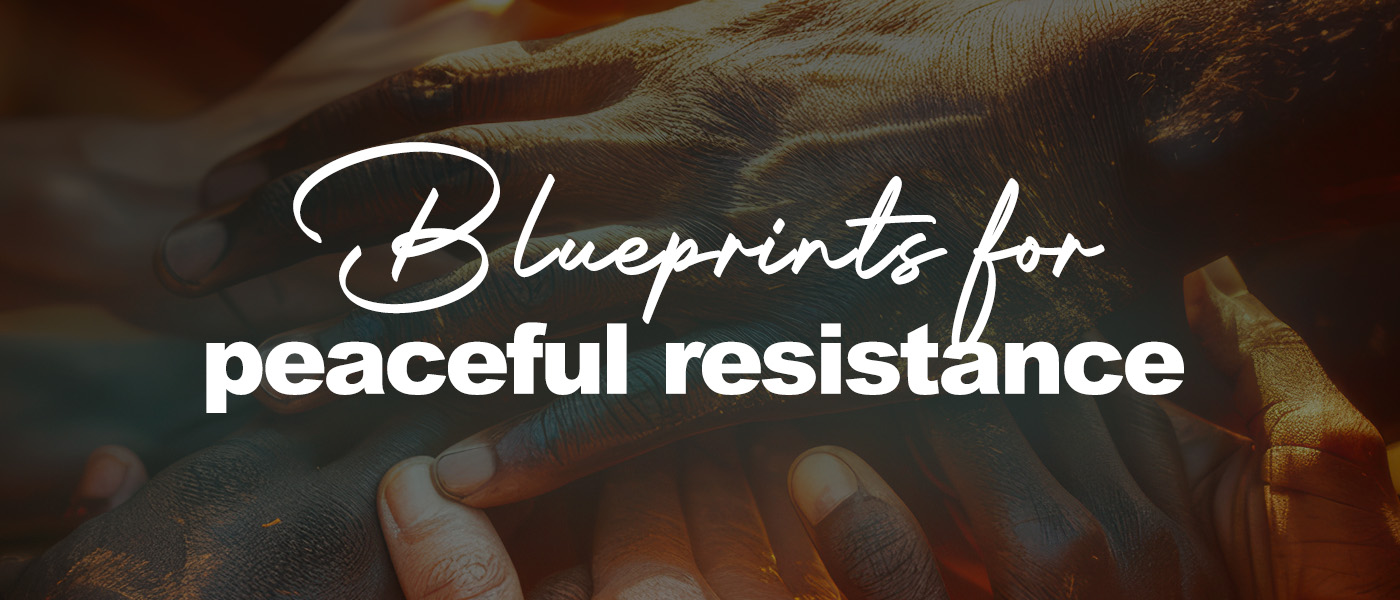In the dusty valley of Ta’if, the Messenger of Allah (SAW) stood with bleeding feet and a heavy heart. He (SAW) had come with a message, and his intention was not to conquer the lands, but to invite people towards a path of righteousness. He (SAW) spoke calmly to the leaders of the town, hoping that they might listen. However, instead of giving such a merciful, humble, patient, and kind man any sort of a welcome, he (SAW) was met with insults, laughter, and eventually, pelted with stones from head to toe. The children were unleashed on him, chasing him out, and the adults merely stood by and watched as the Mercy to Mankind (SAW) was dripping in his own blood, and mocked out of the city. This was a moment of sheer and total rejection by the ignorant. This is a moment where, for most people, retaliation from the Prophet (SAW) would have indeed been justified and maybe even necessary; however, the Prophet (SAW) raised his hands not to strike back, but to make a heartfelt dua.
Afterwards, when the Archangel Jibraeel (AS) came offering to crush the people of Ta’if between the mountains, the Prophet (SAW) replied, “No. I hope that Allah brings from their descendants those who will worship Him alone without associating any partners with Him.” (Sahih Bukhari)

This story isn’t one that we should just read in our sirah books and then move on from to the next page. This requires a great deal of reflection from us as Muslims because this is a window into the moral weight of Islam. In that moment, the Prophet (SAW) demonstrated something that very few people understand today: non-violence is not a sign of weakness, surrender, or defeat; it is an act of high faith. In a world increasingly defined by anger, vengeance, and reaction, Muslims are often caught between two extremes—those who encourage passive silence and those who believe that dignity can only be reclaimed through aggression.
The truth, however, lies in The Quran and in the Sunnah of the Prophet (SAW). Islam is a religion of justice without cruelty, strength without oppression, and mercy without compromise. Regardless of what the media may try to feed the people in the West, our history is a huge testament to the fact that Islam always was, and will always be, a nonviolent religion. This article will explore how non-violence is understood within Islam not as an imported political theory, but as a deeply rooted prophetic principle. We will examine how The Quran defines restraint, how the Prophet (SAW) practiced it, and how the Muslim community can apply it today, especially in moments of tension, hardship, or injustice.
The Quran’s teachings on how to respond to misconduct and harm in a way that pleases Allah (SWT)
The Quran has never called upon or encouraged the Muslims to surrender their dignity, but it has taught them to rise above impulsive retaliation. In The Quran, Allah (SWT) says, “The true servants of the Most Compassionate are those who walk on the earth humbly, and when the foolish address them improperly, they only respond with peace.” (The Clear Quran®, 25:63)

Here, the believers are described not as timid or passive, but as dignified and deliberate. Their power lies in choosing peace over provocation. Their response is calm, not because they cannot fight, but because they are conscious of Allah (SWT).
Another powerful verse on non-violence is, “Good and evil cannot be equal. Respond to evil with what is best, then the one you are in a feud with will be like a close friend.” (The Clear Quran®, 41:34)

The scholars of tafsir mention that this verse is not simply about being polite. It refers to moral resistance, to choosing the higher path when dealing with hostility. It requires deep self-control and sincerity, especially when your emotions are high. However, this does not mean that Islam ignores oppression. In fact, the same Quran that praises patience also permits defensive resistance when necessary.
Allah (SWT) says, “Permission to fight back is hereby granted to those being fought, for they have been wronged. And Allah is truly Most Capable of helping them prevail.” (The Clear Quran®, 22:39)

The balance here is critical, and that is, non-violence is the default, but when justice demands action, Islam allows it, under strict ethical guidelines.
Rasulallah (SAW) has taught us how to live a life of restraint and moral discipline
If anyone had the right to retaliate with force, it was the Prophet (SAW). Yet, the overwhelming pattern of his life was one of restraint, even when insulted, threatened, or attacked. The clearest examples come from the Makkan period, where the Muslims were mocked, tortured, and economically boycotted. Yet, the Prophet (SAW) never organized retaliation during that time. Not because he (SAW) lacked courage or support, but because he (SAW) was training his followers in sabr, mercy, and long-term thinking.
Even after the conquest of Makkah, when the Quraysh expected vengeance, he (SAW) declared, “Go, for you are free.” (Ibn Hisham) He (SAW) had power in that moment, but he (SAW) used it for reconciliation, not revenge. He (SAW) modeled leadership based on mercy and humility. However, there were also moments when force was used such as in the battles of Badr, Uhud, and others. However, even then, the Prophet (SAW) imposed strict rules:
- Do not kill women, children, or the elderly.
- Do not harm crops or animals.
- Do not mutilate bodies.
- Do not pursue those who flee.
These rules are not the norms of ancient warfare; they are the ethics of a Prophet who understood that even in conflict, Muslims must remain spiritually and morally accountable.
How can we all live a life of peace and moral discipline in a world of injustice?
Many Muslims today are unsure of how to apply these teachings because it can be quite difficult with what we see happening around the world. In a time of injustice from Islamophobia to tensions overseas, is non-violence still a valid path? The answer is, yes, but not in the way the modern world defines it. Islamic non-violence is not about being silent. It is about standing firm without losing one’s moral compass even if one might be the only person on earth standing on the opposite side. The Prophet (SAW) said, “The strong person is not the one who defeats others in wrestling, but the one who controls himself in anger.” (Sahih Bukhari)
This hadith is a guide for our times. Young Muslims, especially, are often pressured into reacting out of frustration or shame, and Islam teaches us that no matter what emotions certain injustices invoke within you, be sure that you are holding yourself with decorum and patience. That, however, does not mean that you tolerate abuse because, as The Quran has mentioned, Muslims are not encouraged to sacrifice their dignity for anyone. Muslims must speak up against injustice, politically, legally, and intellectually, but always within the boundaries of the Shari’ah. This is how we protect both our rights and our souls.
A naseeha (advice) to our youth and to our elders
For elders, the lessons of non-violence often come from life experiences such as ones that are rooted in patience, forgiveness, and community. For the youth, these values must be taught with real-life relevance. They need to see that non-violence is not inaction, it is strategic, ethical action. It means knowing when to speak, how to speak, and how to act in a way that pleases Allah (SWT). Families, masajid, and schools should teach the Prophet’s (SAW) response in Ta’if, the rules of war in Islam, the command to forgive, and the importance of self-control. These are not stories for children, they are policies for a successful, peaceful life.
The Prophet (SAW) changed the world not through violence, but through moral force, the kind that softens hearts, reforms societies, and outlasts empires. His victory was not just in battles, but in building a community that preferred forgiveness over fury, prayer over pride, and patience over provocation. As we reflect on the International Day of Non-Violence, Muslims must remember that we do not need to borrow this value from anyone. It is already in our Quran, in our sirah, and in our prayers. We follow a Messenger who had every reason to fight back because people were treating him in the most brutal and oppressive ways. Yet, time and time again he (SAW) chose to forgive his enemies.
In a world that often calls us to anger, may we be among those who respond with wisdom. In a world that rewards revenge, may we follow the one who was sent as a mercy to the worlds (SAW).
Allah (SWT) has said, “We have sent you, O Prophet, only as a mercy for the whole world.” (The Clear Quran®, 21:107)

Dua
Oh Allah! Soften our hearts with mercy, remove anger from our souls, and protect us from the whispers of vengeance and hatred. Replace bitterness in our hearts with compassion, and replace fear with hope in You.
Oh Allah! Grant us strength to stand firm against injustice without falling into injustice ourselves. Grant us courage to speak the truth without arrogance, and patience to endure hardship without despair. Make us people who defend the oppressed, uplift the weak, and guide the lost not through cruelty, but through wisdom, character, and mercy.
Oh Allah! Protect our youth from the traps of rage and despair. Make them leaders of dignity, guided by The Quran, inspired by the Sunnah, and anchored in Your remembrance. Let their anger be transformed into positive action, their pain into perseverance, and their voices into calls for truth and peace.
Oh Allah! Bless our elders with hearts full of wisdom, tongues that call to goodness, and hands that nurture generations to come. Allow them to be lights of patience and examples of mercy in their families and communities.
Oh Allah! Unite us as an Ummah upon truth and justice. Remove from our ranks division, hatred, and envy. Replace it with kinship, compassion, and strength rooted in faith.
Oh Allah! Bring peace to the hearts of the oppressed across the world. Heal the wounds of those harmed by war, persecution, and tyranny. Free the prisoners, shelter the orphans, and protect the innocent. Ya Rabb, let us be a source of peace for our neighbors, a source of hope for our societies, and a source of mercy for all of creation.
Oh Allah! Do not test us with trials we cannot bear. Do not let our anger blind us to Your wisdom. Do not let our pain make us forget Your mercy. Make us among those who, when struck by hardship, say, ‘Indeed, we belong to Allah, and indeed, to Him we will return.’
Oh Allah! Grant us the strength of patience, the honor of restraint, and the reward of those who place their trust in You.
Ameen!





